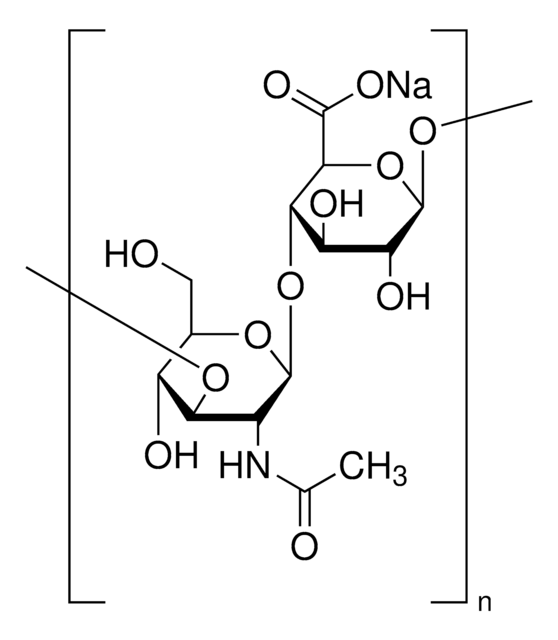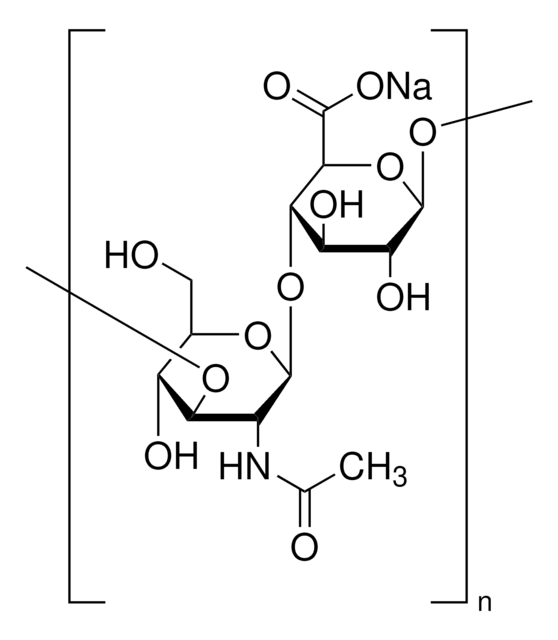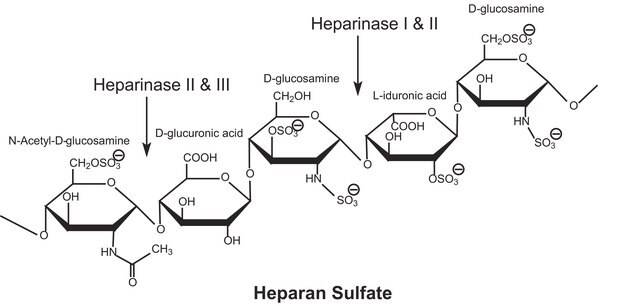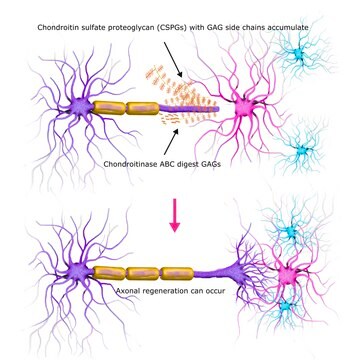H1136
Hyaluronidase from Streptomyces hyalurolyticus
Synonym(s):
Hyaluronate Lyase from Streptomyces hyalurolyticus
About This Item
Recommended Products
biological source
Streptomyces sp. (S. hyalurolyticus)
Quality Level
conjugate
conjugate (Glucosaminoglycan)
form
film (Clear)
packaging
ampule of 300 × units
storage temp.
−20°C
Looking for similar products? Visit Product Comparison Guide
Related Categories
General description
Application
- in the preparation of DMEM/F-12 (Dulbecco′s modified eagle medium/nutrient mixture F-12) media for the isolation and purification of single cells from dissociated tumour tissue
- as a component of digestion solution for the derivation of germline stem cells from testicular tissue
Biochem/physiol Actions
Unit Definition
Other Notes
Storage Class Code
11 - Combustible Solids
WGK
WGK 3
Flash Point(F)
Not applicable
Flash Point(C)
Not applicable
Personal Protective Equipment
Certificates of Analysis (COA)
Search for Certificates of Analysis (COA) by entering the products Lot/Batch Number. Lot and Batch Numbers can be found on a product’s label following the words ‘Lot’ or ‘Batch’.
Already Own This Product?
Find documentation for the products that you have recently purchased in the Document Library.
Customers Also Viewed
Articles
A key resource feature at our Enzyme Explorer section of biochemicals is "Enzymes for Carbohydrate Analysis and Digestion." Offering kits, reagents, analysis, lists of enzymes related to PTM and carbohydrate metabolism.
Glycosaminoglycans are large linear polysaccharides constructed of repeating disaccharide units.
Protocols
This procedure may be used for Hyaluronidase products.
Our team of scientists has experience in all areas of research including Life Science, Material Science, Chemical Synthesis, Chromatography, Analytical and many others.
Contact Technical Service







